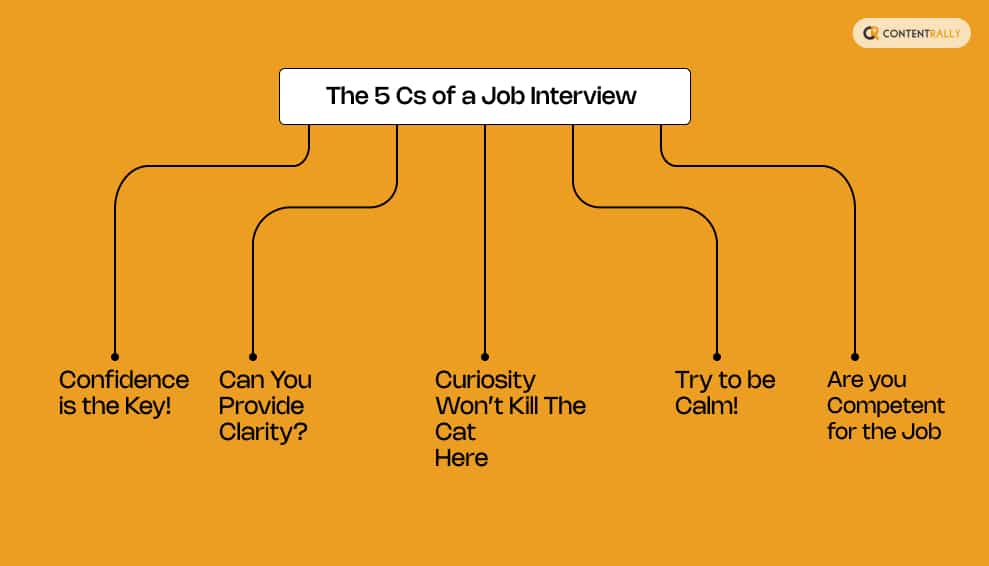Got called for an interview for that dream job you have wanted for a long time?
Well, congratulations for starters! Secondly, are you ready with the top interview skills? Ensuring that you are putting your best foot forward!
Do not worry, this doesn’t automatically mean you are underprepared. Your confidence to ace the interview will get half of the job done!
However, to improve your interview game, you should know what the experts say about a guaranteed interview win.
Especially the skills that can help you achieve that goal!
Top Interview Skills – Preparing For A Win

A good interview is more than just an opportunity to show off your resume or learn about a new company.
It’s about having key interview skills to help you shine above the competition. From communication skills to problem-solving abilities, here are the skills you need to start polishing.
Got an interview for your dream job? Great!
The tricky part is getting the job.
But don’t worry, I’m here to help with your interview prep. Let’s begin with the following:
The 5 Cs Of A Job Interview

Here’s a job interview preparation framework: the 5Cs. Five qualities you should try to convey at your interview to be successful.
1. Confidence Is The Key!
Confidence is indeed the key. Employers want to hire people who can perform well under pressure and believe in their abilities.
You can come with many skills, but how would they know if you cannot showcase them?
However, keep in mind that confidence doesn’t have to be loud and on someone’s face.
There’s a fine line between confidence and arrogance. Be assertive but also respectful and open to learning.
How do you express confidence?
Start with eye contact, a firm handshake, and positive body language. Know your strengths, but also be ready to discuss your weaknesses and how you’ve worked to improve them.
2. Can You Provide Clarity?
Be clear and concise with your words.
Stuttering, pausing, or slipping in thoughts will make you appear unconfident. This doesn’t mean you cannot pause between your answers. Whenever you feel like you need to take a break, always do so with confidence.
It will also give the impression that you didn’t memorize the answers but rather know how to have a proper conversation.
Take it slow, and do not chew on your words. It makes the interviewer aware of nervousness! Plus, learn how to answer basic interview questions using clear & succinct lines. Don’t be absolutely clueless there and take your time thinking.
The more focused your answers are, the better you can convey what you think.
3. Curiosity Won’t Kill The Cat Here
Be curious about everything and always be ready to learn. Curiosity keeps the mind engaged and open to new ideas and possibilities, making you a better problem-solver and decision-maker. Plus, your curious questions can also hold the conversation better.
Show genuine interest in the role and company. It is not a surprise that employers love a candidate who is inquisitive and shows they are keen to learn/grow. Ask questions about the company culture, future goals, challenges, etc. Here are some of the unique interview questions to ask employers.
4. Try To Be Calm!
Staying calm is most important in any kind of interview situation. Being mindful, calm, and present are some of the top interview skills out there!
I know it is not easy, and you are totally panicking if it is a dream job, and you do not want to mess up!
But trust me, thinking and losing your sleep over it will not bring you any positive results. The employer wants to see if the person can think clearly and answer thoughtfully, even if you are nervous.
So, take a deep breath, smile, and if you need a few seconds before answering, that’s alright!
5. Are You Competent For The Job
Again, it could be a dream job, but do not apply for a role (especially in a higher position) if you are not sure!
This is one of the reasons why understanding your competency for the job is crucial. It is not about putting yourself down but knowing your strengths & weaknesses well.
If needed, you can also ask the recruiter beforehand to explain the job role in detail.
Your experience will show your Competence, skills, and how much you know about the job you are being interviewed for. Read the job description properly and respond in a targeted way, describing how your experience fits the role.
Dos & Don’ts Of An Interview

Knowing what to do and not do in an interview can make all the difference. Here are some important dos and don’ts to help you present yourself as a true professional.
Here is what you should do during your job interview:
Do Some Company Research
Before you even get to the interview, make sure you know what you’re getting into. You’ll be able to answer and ask questions more effectively if you’ve taken the time to learn about the company’s history, culture, and goals.
Do Dress Appropriately
First impressions are everything. Dressing appropriately will show that you take the interview seriously and understand the company’s culture. When in doubt, dress business casual unless the culture of the company says otherwise.
Do Listen Attentively
An interview is a conversation, not an interrogation. Listen to what your interviewer is saying and respond accordingly.
Being a good listener is also one of the crucial interview skills. This will demonstrate that you can work well with others in the workplace.
Now, here is what you shouldn’t do.
Don’t Over-talk Or Interrupt
While it’s important to provide thorough answers, you don’t want to monopolize the conversation. Answer the question and then stop talking. Let the interviewer guide the discussion, and don’t talk over them.
Don’t Say Anything Bad About A Former Employer
Don’t badmouth your former employer Even if you didn’t have a great experience at your last job.
Potential employers are looking for candidates who can remain professional and positive in difficult situations.
Which Skills Do I Need In An Interview?

Interviewing is all about presenting your best self, and that starts with showcasing your skills. You don’t just want to show that you’re qualified on paper.
Yes, you also want to demonstrate that you can effectively and comfortably communicate your qualifications in person.
So, here are the top six skills employers look for when they interview candidates!
1. Clear Communication
Clear and effective communication is key for any successful interview. You need to articulate your thoughts, respond to questions, and share your views in an easy-to-understand manner.
Practice speaking clearly and using professional language without unnecessary jargon.
2. Critical Thinking
You may be a natural problem solver and excel in critical thinking or need to work on it. If the latter is the case, it is time for you to polish your critical and quick-thinking skills. A good way to do so is by joining a workshop on interview skills.
Many employers will want to know how you have dealt with difficult situations in the past. Here is your opportunity to let them see your problem-solving skills.
Think of examples when you devised creative solutions to hard problems.
3. Adaptability
In today’s ever-changing job market, flexibility is the name of the game. You cannot be afraid of change and think you will fixate on the same skills and the same means for years on end.
The whole corporate scene is getting dynamic, which means there is a new change at every corner. Therefore, demonstrate that you can adapt to change and be open to new ideas and challenges.
You can also give examples of when you were forced to be fluid and how you thrived in a new environment.
4. The Ability To Lead
Leadership skills are essential Even if you’re not applying for a management position. After all, you would want to give the impression that one day you will be capable enough to lead a team.
Especially if someone asks you about your five-year plan, this shows that you can take initiative, guide others, and make decisions when needed.
Share examples where you demonstrated leadership qualities, even in small tasks or team collaborations.
5. Technical Skills
The digital trends are growing at an unsteady pace, and you will need to adapt quickly!
For many positions, you’ll also need specific technical skills, whether it’s the ability to use certain software, machines, or tools or expertise in a particular methodology.
Familiarize yourself with the technical skills needed for the position and mention them in your response.
What’s The Best Answer To “Tell Me About Yourself”?
Ah, the dreaded “Tell me about yourself” interview question! No amount of interview skills can prepare you for that!
This one is tough because it’s so open-ended. Yes, you don’t want to give too much away and tell your life story, but you also need to give a well-rounded answer. Here’s how to nail it.
First, give a quick background of your career thus far, including only things that are pertinent to this job application. Briefly mention a few big achievements that might pique their interest (make them want to keep reading!).
Then, please talk about your skills and how they relate specifically to this role. Finish your statement by explaining why you’re excited about this opportunity and how you’ll help the company as a result.
Here Is A Good Example Of This Question:
“I’ve spent the past five years working as a digital marketing specialist, where I helped companies grow their online presence and customer engagement. I got to work on some cool campaigns, like a social media campaign that increased our client’s online sales by 30%.
Not only did I learn the ins and outs of SEO, content strategy, and data analytics in my role, but this is also what you’re looking for! I’m super excited to bring my skills to your team and help drive your digital marketing efforts!”
You should also read 10 interview questions, for better preparation!
Read Also:






















